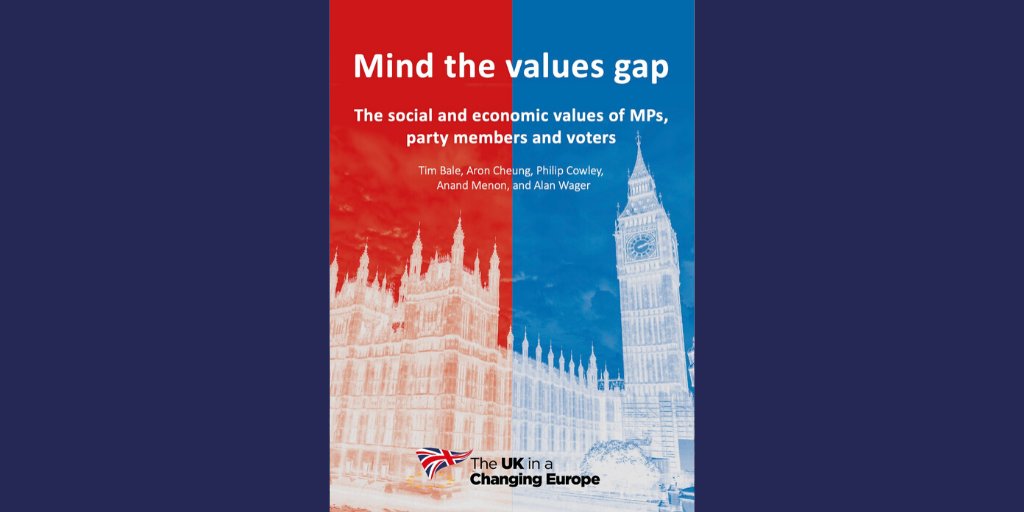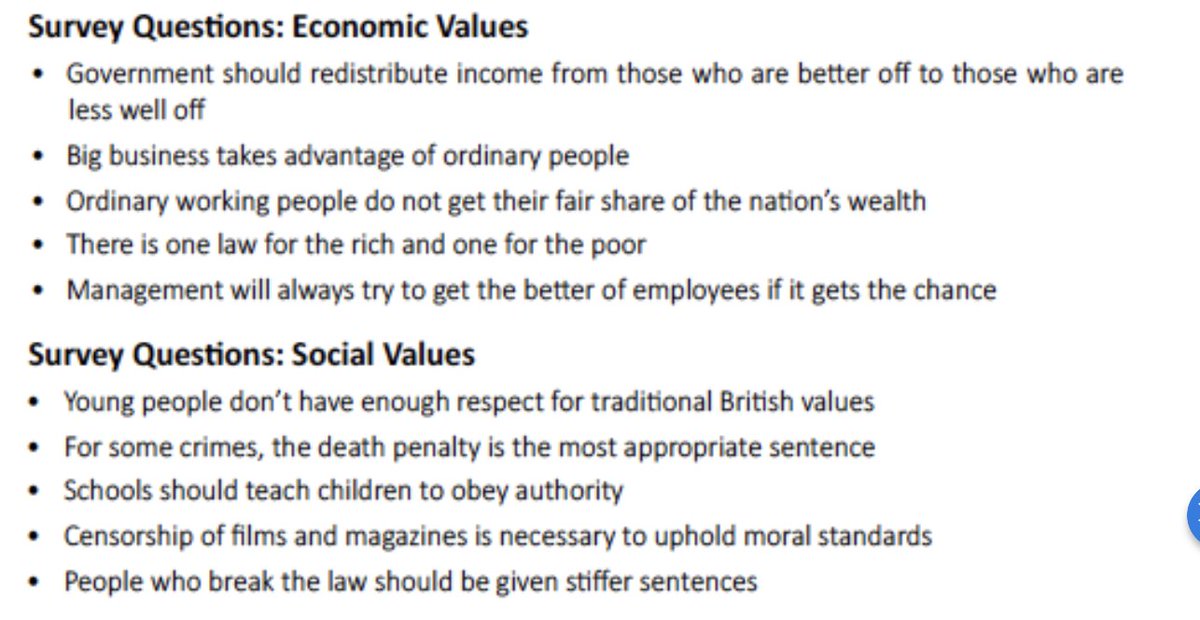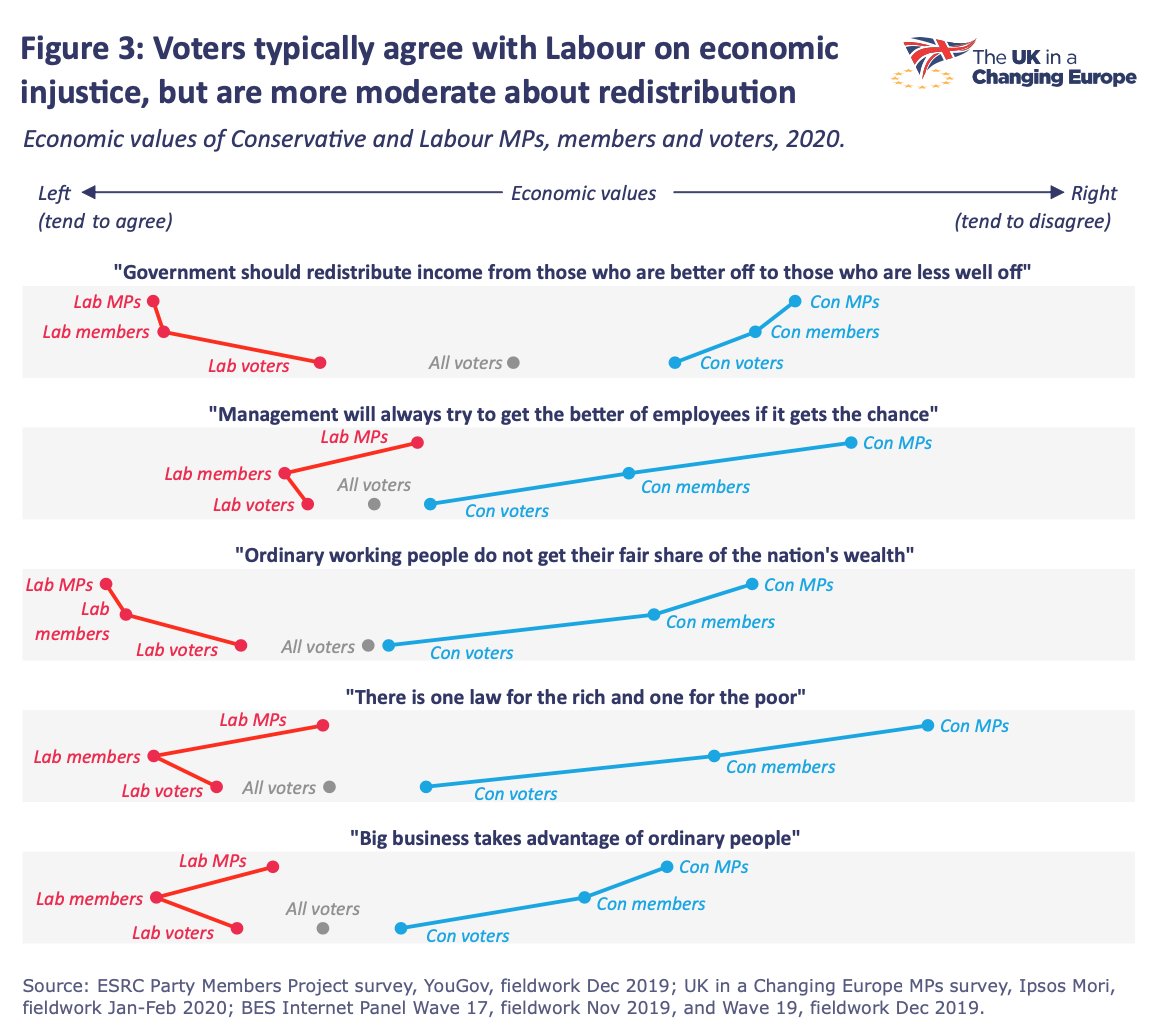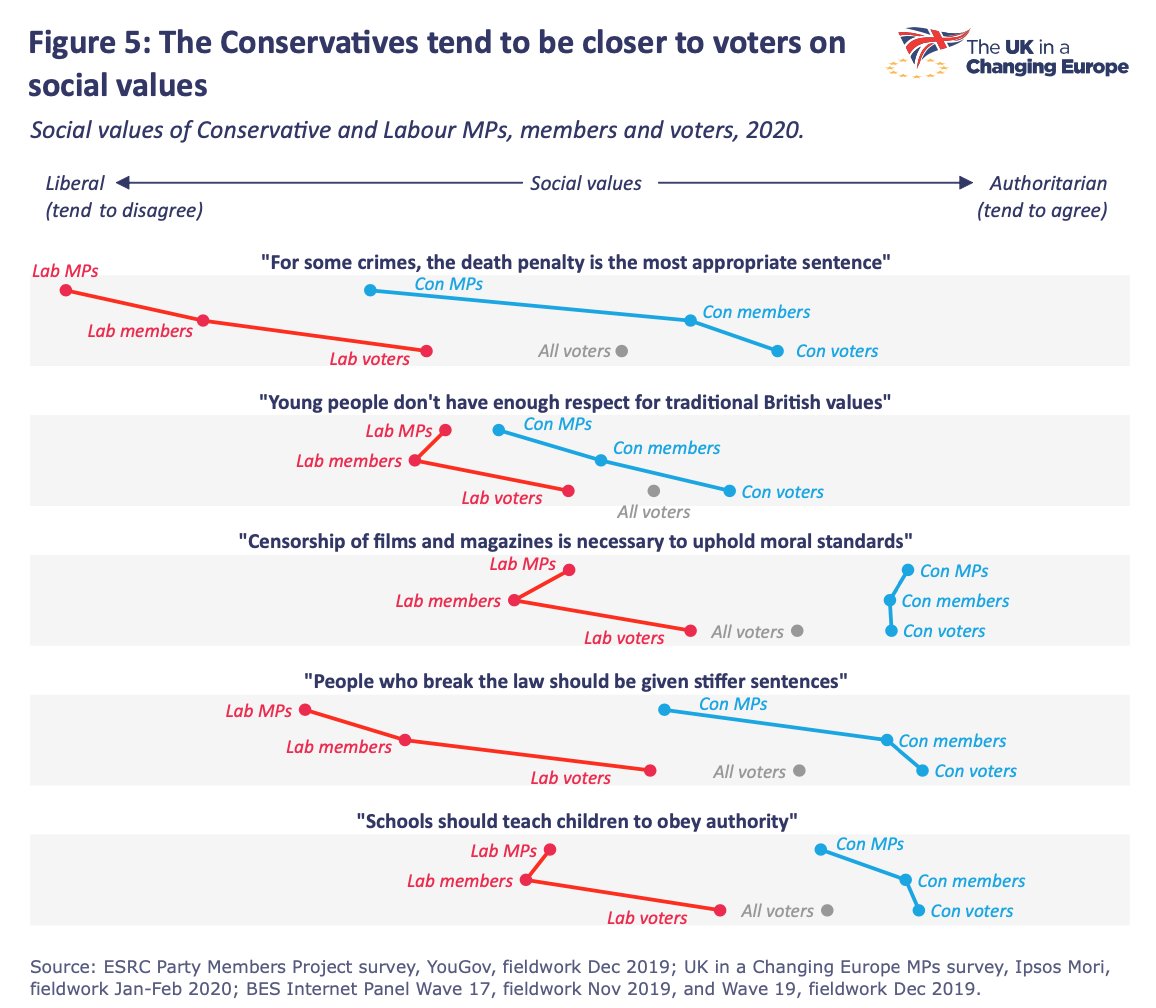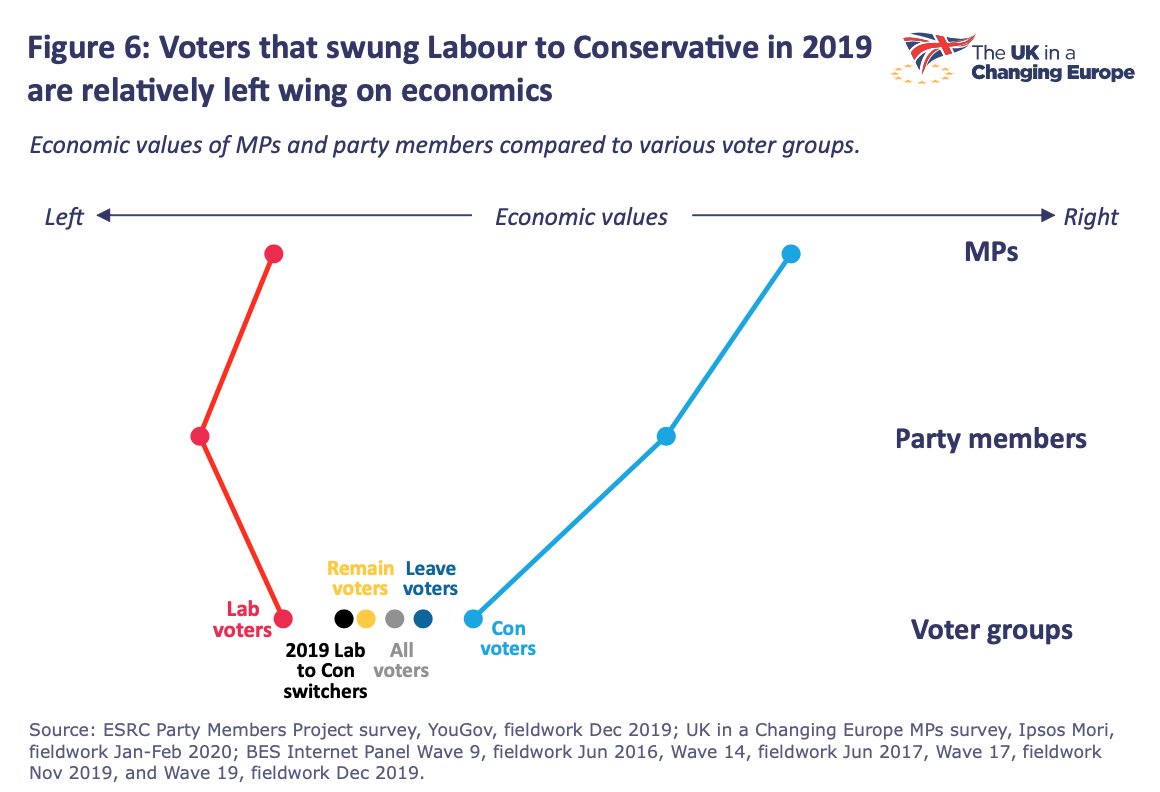Earlier this week, we released our NEW #Mindthevaluesgap report on social and economic values in politics by @ProfTimBale @philipjcowley @DrAlanWager @anandMenon1 and @Aron_Cheung.
For this week's #Thursdaythread, we share some highlights.
@KingsCollegeLon @KingsSSPP
For this week's #Thursdaythread, we share some highlights.
@KingsCollegeLon @KingsSSPP
To begin, here's @DrAlanWager summarising the report in less than 40 seconds.
He says it's a "data driven pen portrait of where our political parties stand on fundamental questions that will shape our politics in the next few years."
@LSEEI
He says it's a "data driven pen portrait of where our political parties stand on fundamental questions that will shape our politics in the next few years."
@LSEEI
Of if you want a slightly longer summary, listen to our deputy director @ProfTimBale discussing the key conclusions.
@QMUL_HSS @QMUL @QMPoliticsIR @MileEndInst
@QMUL_HSS @QMUL @QMPoliticsIR @MileEndInst
We asked MPs and members a series of questions about their economic and social values, a set of questions drawn up by @BESResearch.
We were then able to analyse the ideological position of:
- MPs
- Party activists who campaigned in 2019
- Inactive party members
- Those who have run for office for the parties
- Labour and Tory voters in 2019
- And ‘switchers' from Lab 2017 Con 2019
Con 2019
- MPs
- Party activists who campaigned in 2019
- Inactive party members
- Those who have run for office for the parties
- Labour and Tory voters in 2019
- And ‘switchers' from Lab 2017
 Con 2019
Con 2019
On the economy, we found a chasm between the Conservatives & the country: the Parl Party is significantly more right wing than party members let alone Conservative voters.
In terms of views of economic justice & inequality, Conservative MPs differ substantially from the public.
In terms of views of economic justice & inequality, Conservative MPs differ substantially from the public.
The idea that ‘there is one law for the rich and one law for the poor’ is a view held by 73% of voters and 84% of those who moved from backing Corbyn in 2017 to Johnson in 2019.
But just 5% of Conservative MPs.
But just 5% of Conservative MPs.
Yet, when it comes to social values Labour has a real electoral weak-spot: the Conservative Party is closer to voters on all the questions we asked which tap into social values.
Conservative MPs are more liberal than the public, as are Tory members.
44% of Conservatives MPs agree ‘young people don’t have enough respect for traditional British values’.
That’s a view held by 88% of those who switched from Corbyn in 2017 to Johnson in 2019.
44% of Conservatives MPs agree ‘young people don’t have enough respect for traditional British values’.
That’s a view held by 88% of those who switched from Corbyn in 2017 to Johnson in 2019.
Drilling down into those ‘switchers’ shows they were significantly more left wing on the economy than most voters.
But when it comes to the liberal-authoritarian axis – where the Leave/Remain polarisation has happened - these voters are more authoritarian than the average Conservative voter.
For @UKLabour and @keirstarmer, this is evidence they will benefit if they can make the debate about the economy.
The @Conservatives can further benefit from the values divide that underpinned Brexit.
The @Conservatives can further benefit from the values divide that underpinned Brexit.
Read the FULL #Mindthevaluesgap report here 
https://ukandeu.ac.uk/wp-content/uploads/2020/06/Mind-the-values-gap.pdf

https://ukandeu.ac.uk/wp-content/uploads/2020/06/Mind-the-values-gap.pdf

 Read on Twitter
Read on Twitter